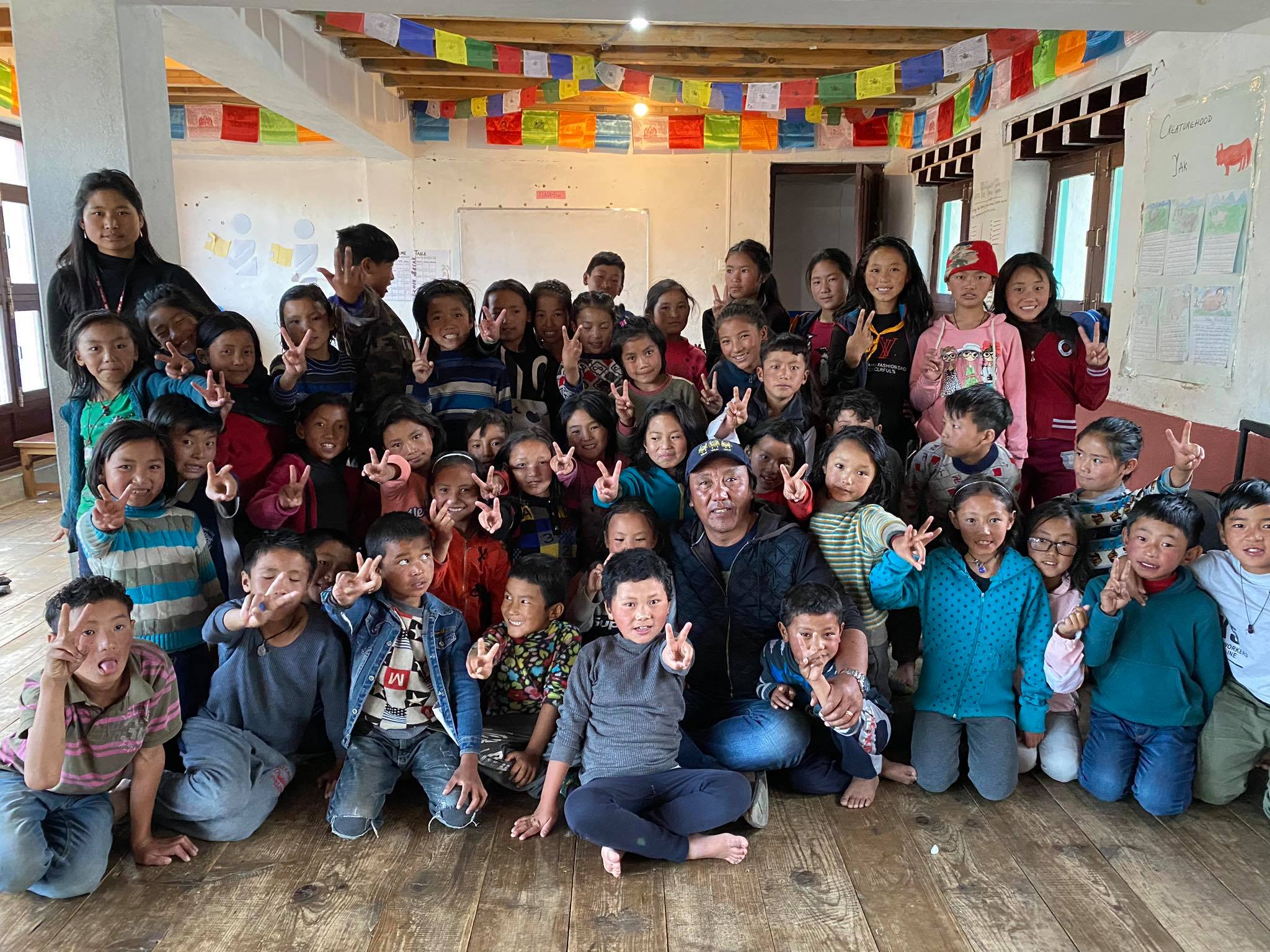Some schools re-open in remote rural Nepal

It has been six months since students and teachers all over Nepal have not had classes, but schools in remote rural Nepal with few or no Covid-19 cases are beginning to re-open.
After being closed for nearly half-a-year, rural municipalities have decided to resume school with an ‘alternative education model’ from 17 September, the day the government also allowed long-distance buses and further relaxation of lockdown rules in some districts.
Upper Mustang’s Lo-Gekar Rural Municipality resumed classes on Thursday since there have been no Covid-19 cases reported in this trans-Himalayan region of Nepal.
“I think we have had enough of this closure, we need life to get back to normal, and especially the children need to be back in classes,” said Lo-Gekar municipality chair Raju Bista.
Children in Upper Mustang have long winter breaks due to severe winters, so if the school had remained closed for another month, most children would have lost a full year of classes.
However, the biggest hurdle at the moment for schools all over Mustang district is the massive landslide at Rupse which has blocked the Kali Gandaki Highway for the pasts two months. It is not likely to be opened soon. This means will take time for students and teachers who had gone away to return.
But that has not deterred Wangdu Lama, principal of the Ghami Solar School to start classes for students who have remained behind. The school has 65 boarders from surrounding villages, and Lama says adequate precautions are being taken to ensure distancing and mask-wearing.
“Schools are where children are supposed to be,” says Lama. “We used to have four children per bench, now we will have only two. Classes will last from nine to four, and we will teach only three subjects English, Maths and Science for now because the other teachers are away.”
Online classes may widen digital divide, Madhu Sudan Dahal

Across the Thorong La pass in Manang, classes also resumed on 17 September. The remote district has had only four Covid-19 cases, and all have recovered. At this time, the scenic valley would have been preparing for the autumn trekking season, but the trails have been empty for most of 2020.
“We had to call guardians to tell them classes are resuming, and that we will be taking all precautions about the virus,” said Lokendra Ghale, chair of Chame Rural Municipality.
Half of Nepal's girls may drop out of school, Namrata Sharma
In western Nepal’s Achham district, a joint meeting of school officials and health care workers of the remote Mellekh Rural Municipality decided that it would be safe to re-open schools with proper preventive measures even though the town had 138 Covid-cases, initially brought by returning workers from India.
“We have not had any new cases now for 20 days, so we decided it was safe to partially re-open schools from next week with just one grade per day,” explained Municipality Chair Lok Bahadur Bohara. “We have to compensate for all the months of classes that students here have lost.”
Mellekh alone has 43 schools scattered across the mountains, and officials there have kept a close tab on the number of new cases and developed an effective contact tracing and home isolation strategy.
Digital divide exposes class divide in Nepal schools, Nunuta Rai

Even in areas with higher Covid-19 caseloads like Baglung district, some schools are re-opening. The Wadigad Rural Municipality is taking the government’s directive of developing an alternative education model with an uncommon approach: community learning.
Principal Dhalmani Bhandari of Tribhuvan Secondary School says his classrooms have been turned into a quarantine centre with 19 active cases, so his students are assigned to 15 alternative education centres scattered across the municipality. To avoid crowding, each will have two shifts: 10am to 1pm and afternoon 2pm to 5pm.
“Education is a basic right, and we cannot deprived our students from it,” Bhandari said. “We are using television and radio for distance learning, but for other students who do not have access to those devices, we are using the community learning method.”
Wadigad had 47 Covid-19 patients, and Bhandari is frustrated with the Ministry of Education in Kathmandu not allowing local governments to decide whether it is safe to re-open schools or not.
“The government cannot have a blanket ban on classes all over Nepal. In places with few or no Covid cases, schools should re-open with all necessary precautions,” says Shanta Dixit, director of Rato Bangala Foundation, which supports rural schools with training and teaching material.
Students are being told about wearing masks, covering the mouth while coughing or sneezing, washing hands with soap, and health experts say these will also prevent the spread of non-coronavirus infections like tuberculosis, measles, typhoid and diarrhea.
Municipality Chair Raju Bista of Lo-Gekar in Mustang says that most families cannot afford to buy disposable masks every day for their children or spend on sanitisers, so the school is propagating cloth masks and handwashing.
A decade of work lost in four months, Sheryl Lee




